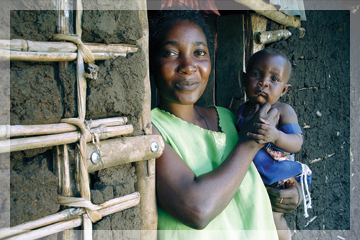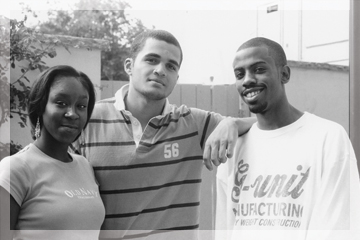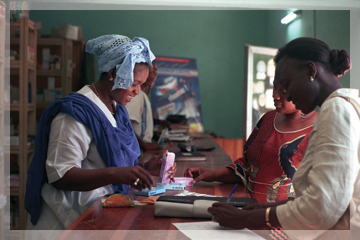Training, Research and Advocacy

Photo by Ami Vitale, courtesy of CARE.
In any field, sound policy demands solid research and effective advocacy. The population sciences are no different. The Program pays particular attention to supporting high-quality research and making sure that decisionmakers use it to improve reproductive health and development policy. In 2007, the Program focused on the following three areas:
Stimulating research on the economic impact of population dynamics and reproductive health. In 2007, the Program supported an intensive study on the impact of population dynamics and reproductive health on economic growth and poverty reduction. The community of development economists and demographers who conducted the research will share the results of these studies with relevant policymakers around the world. In 2007, the African Economics Research Consortium launched its first research studies on population dynamics and economic development in twelve African nations.
Training the next generation of population scientists. The Foundation continued to address the shortage of African specialists in population sciences in Africa. Our partnerships with six African training institutions have had an inspiring impact—these centers of learning have revamped their curricula, and scholars are returning to produce much-needed research. Applications for training are on the rise, and faculty living abroad are returning home to teach. We are also working with three universities in Africa and two in North America to create a network of French-language training programs in the population sciences—an extremely important need in French-speaking West Africa.
Advocating to improve the use of data to guide reproductive-health and development policies. As it now stands, African scholars and policymakers are unable to use some basic information necessary to their research because the data are inaccessible for technological, political, or other reasons—or because the data they need are not collected in user-friendly ways. In 2007, the Program launched an eighteen-month exploratory initiative called Demographic Dynamics for Development. This initiative plans to expand access to demographic and related data for policymaking in development. Grantees conducted a series of advisory sessions in 2007 and selected four countries to serve as case studies.
Training, Research and Advocacy Grants authorized in 2007.
2008 Goals
- Share new research on the economic impact of population dynamics and reproductive health from the World Bank, Harvard, and grantees funded through Foundation research competitions
- Expand grantmaking to advocates of improved international family planning and reproductive health funding and policies
- Continue to support the training of the next generation of population scientists
- Examine the link between the work of the Demographic Dynamics for Development initiative and the Foundation’s Global Development Program’s parallel work in research, advocacy, and development aid
For more information, please visit the Foundation Web site.




